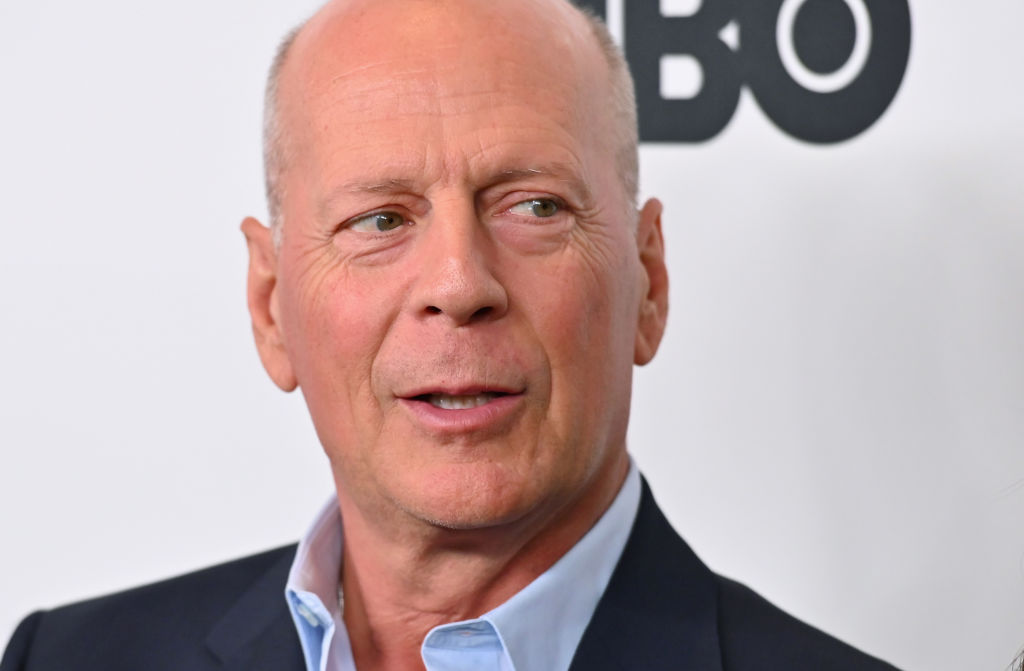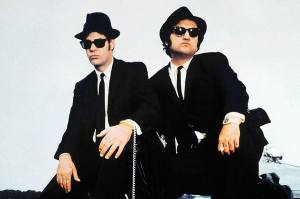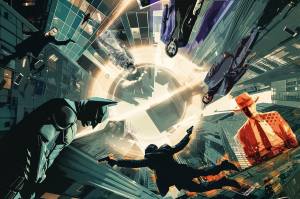The news that Bruce Willis is to “step away” — rather than explicitly retire — from acting following a diagnosis of the brain disorder aphasia, is sad for both personal and artistic reasons. Even as a flood of stories emerge about Willis’s erratic and unpredictable behavior on film sets over the past few years, it is a bitter irony that, after a lengthy career as the tough guy hero — in Armageddon, he defeated no less an antagonist than a planet-threatening asteroid — the actor has finally been undone by his own brain.
The news also makes the recent receipt of Willis’s Golden Razzie “award” for his performance in Cosmic Sin particularly cruel, not least because he was “honored” with a special category, “Worst Performance by Bruce Willis in a 2021 Movie.” It now seems entirely clear why Willis sought well-remunerated roles in obscure straight-to-streaming titles for years, as it would bring in the maximum amount of money for the minimum amount of work, providing for his forced departure from cinema. It is a poignant reminder that, no matter how wealthy or successful actors are, they are subject to the same vagaries of health as ordinary citizens, however humiliating or unpleasant the aging process invariably becomes.
In any case, whether Willis enjoys a long and peaceful old age or if his condition worsens dramatically, he will not be remembered for paycheck cameo roles in such films as American Siege, Out of Death and Hard Kill. Instead, he will always remain one of cinema’s most likable and indomitable heroes.
Willis’s performance as John McClane in his first Die Hard film — combining wit, vulnerability and charisma — remains a high watermark in his career. In 1987, when the film was released, it was a welcome reminder that action heroes did not have to be monosyllabic hulking masses of a Schwarzenegger or a Stallone, but could instead be lither, more amusing presences, everymen rather than Supermen.
Since then, Willis’s career has ricocheted in a fashion that seems extreme, even by Hollywood leading men’s standards. There have been excellent supporting performances in quietly interesting projects (most recently as a doomed private detective in Edward Norton’s 2019 Motherless Brooklyn). There have also been affecting leading roles that show Willis turning his back on the macho charisma that he became synonymous with, none more notable than The Sixth Sense, which, along with Die Hard, should have seen him receive at least the Oscar nomination that evaded him throughout his career.
There have also been Easter Island-level appearances of statuesque impassivity (Armageddon, for instance) and misguided attempts to play comedy that irritate rather than amuse. Willis’s notorious vanity project Hudson Hawk represents the nadir, but his appearance as the journalist Peter Fallow — a character originally based on Anthony Haden-Guest — in Brian de Palma’s dire adaptation of Bonfire of the Vanities comes close.
Yet every time Willis turned in a disengaged performance in a dismal film, there was always something interesting and worthwhile right ’round the corner. There was his career-resurrecting appearance in Pulp Fiction — so much livelier and richer than John Travolta’s in the same film — and his later roles in Wes Anderson’s Moonrise Kingdom and Rian Johnson’s Looper, which seemed to hint at a glorious late career as a character actor, which now, tragically, will never come to fruition.
Willis’s millions of fans, as well as his occasional critics, must hope his health condition can be managed and that he may yet be able to return for small cameos in films that interest him. But even if he never acts again, he leaves behind a remarkable legacy. No number of Golden Raspberries will alter that.


















